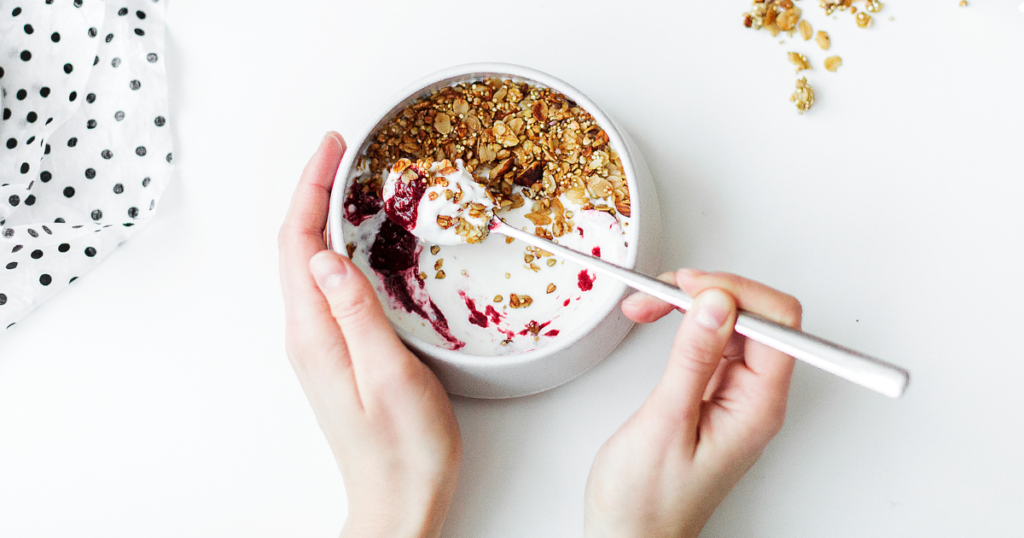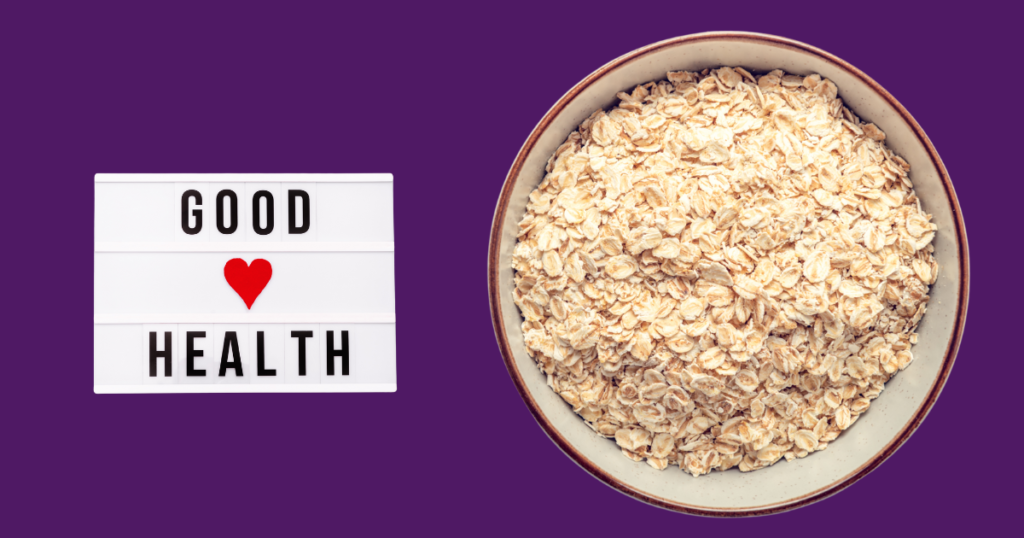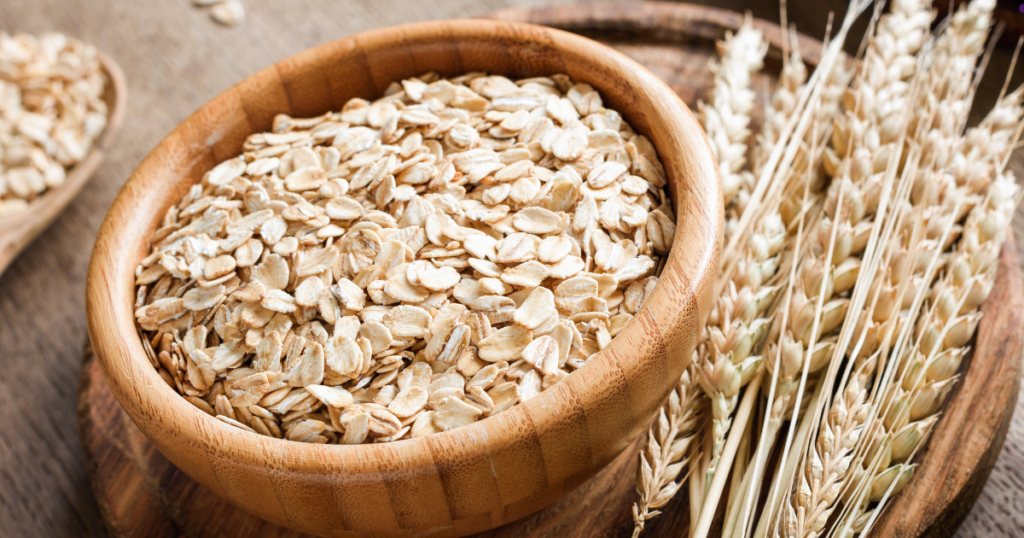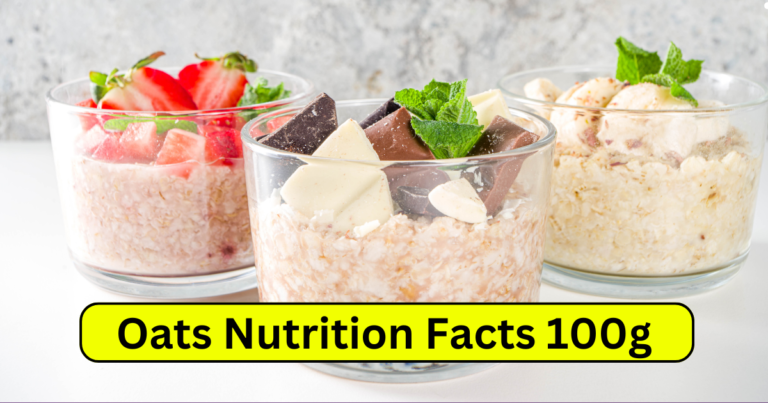Oats have long been a staple food, valued for their versatility, ease of preparation, and significant health benefits. Whether consumed in the form of oatmeal, granola, or added to smoothies and baked goods, oats are known to be a rich source of essential nutrients. But what exactly does 100 grams of oats offer in terms of nutrition? Let’s explore the comprehensive nutritional profile of oats and understand why they have earned a reputation as a “superfood.”
The Nutritional Profile of 100g of Oats

Oats, in their pure form, are a nutritional powerhouse. The following table summarizes the primary nutritional content found in 100g of raw oats:
| Nutrient | Amount per 100g |
|---|---|
| Calories | 389 kcal |
| Carbohydrates | 66.3g |
| Dietary Fiber | 10.6g |
| Protein | 16.9g |
| Fats | 6.9g |
| Saturated Fats | 1.22g |
| Monounsaturated Fats | 2.18g |
| Polyunsaturated Fats | 2.54g |
| Sugar | 0.9g |
| Calcium | 54mg |
| Iron | 4.7mg |
| Magnesium | 177mg |
| Phosphorus | 523mg |
| Potassium | 429mg |
| Sodium | 2mg |
| Zinc | 3.97mg |
| Vitamin B1 (Thiamine) | 0.763mg |
| Vitamin B3 (Niacin) | 0.961mg |
| Vitamin E | 0.42mg |
Also Read: Turmeric Drink for Weight Loss
Caloric Content: Energy for Your Day
At 389 calories per 100 g, oats provide a substantial energy boost. These calories are derived mainly from complex carbohydrates, which release energy slowly and help maintain stable blood sugar levels, making oats an ideal food for sustained energy throughout the day.
Carbohydrates: Fuel for Body and Mind
Oats are rich in carbohydrates, with 66.3g per 100g. Unlike simple carbohydrates found in sugary snacks, the carbs in oats are complex, meaning they are digested more slowly. This slow digestion process provides a steady source of energy, making oats perfect for breakfast or a pre-workout snack.
Fiber: Supporting Digestive Health
One of the key benefits of oats is their high fiber content, particularly beta-glucan, a type of soluble fiber that is known to lower cholesterol levels. With 10.6g of fiber per 100g, oats support healthy digestion, help prevent constipation, and contribute to heart health by reducing LDL (bad) cholesterol.
Protein: Building and Repairing Tissue
Oats are an excellent plant-based source of protein, offering 16.9 grams per 100 grams. Protein is essential for muscle repair, immune function, and overall growth. This high protein content makes oats a valuable food source for vegetarians and vegans, as well as anyone looking to increase their protein intake without relying on meat.
Also Read: Turmeric Drink for Weight Loss
Fats: Healthy Fats for Heart Health
Although oats contain 6.9 g of fat per 100 g, these fats are primarily unsaturated, which are beneficial for heart health. Oats provide a mix of monounsaturated (2.18g) and polyunsaturated fats (2.54g), both of which have been shown to reduce bad cholesterol levels. The 1.22g of saturated fats is relatively low, which helps keep oats in the category of heart-healthy foods.
Vitamins and Minerals: Micronutrient Powerhouse
Oats are packed with a range of essential vitamins and minerals. Some of the standout micronutrients in 100g of oats include:
- Magnesium (177mg): Magnesium is vital for muscle function, nerve transmission, and energy production.
- Phosphorus (523mg): Important for bone health, phosphorus also plays a role in the formation of DNA and RNA.
- Iron (4.7 mg): Iron is critical for transporting oxygen in the blood, and oats are a good plant-based source of this nutrient.
- Zinc (3.97 mg): Zinc supports the immune system and helps the body heal wounds.
- Vitamin B1 (Thiamine, 0.763mg): Thiamine is essential for converting food into energy and supports proper nerve function.
- Potassium (429mg): Potassium helps regulate blood pressure and fluid balance in the body.
Also Read: Turmeric Drink for Weight Loss
Low in Sugar and Sodium
One of the best aspects of oats is that they are naturally low in sugar and sodium. With only 0.9g of sugar and 2mg of sodium per 100g, oats are a perfect option for those looking to reduce their intake of added sugars and sodium, which can contribute to health issues like high blood pressure and diabetes.
Also Read: Turmeric Drink for Weight Loss
Health Benefits of Oats

Due to their exceptional nutrient content, oats offer a range of health benefits:
1. Heart Health
The beta-glucan fiber in oats has been extensively studied for its ability to reduce cholesterol levels, particularly LDL cholesterol. This reduction in LDL can lower the risk of heart disease. Additionally, the magnesium and potassium in oats help regulate blood pressure.
2. Weight Management
Oats are high in fiber and protein, both of which promote a feeling of fullness. Eating oats for breakfast can help reduce hunger throughout the day, which in turn may help with weight management.
Also Read: Turmeric Drink for Weight Loss
3. Blood Sugar Control
The slow digestion of oats’ complex carbohydrates means that they have a low glycemic index, which is beneficial for people with type 2 diabetes or those looking to control blood sugar spikes. The fiber content also helps slow the absorption of glucose, leading to better blood sugar control.
4. Digestive Health
Oats are a good source of both soluble and insoluble fiber. The soluble fiber in oats forms a gel-like substance in the digestive tract, which slows digestion and helps the body absorb nutrients. The insoluble fiber helps add bulk to stool, promoting regular bowel movements and preventing constipation.
How to Incorporate 100g of Oats Into Your Diet

Now that you understand the nutritional power of oats, here are some delicious ways to include them in your diet:
- Overnight Oats: Soak oats in milk or a dairy-free alternative, add some fruits and nuts, and refrigerate overnight for a quick and easy breakfast.
- Oat Smoothies: Blend oats into your smoothies for added fiber and protein.
- Oat Pancakes: Use oats as a flour alternative in pancake batter to boost the nutritional value of your favorite breakfast treat.
- Oat Bread: Swap out regular flour for oat flour in homemade bread recipes to increase fiber content.
- Baked Goods: Add oats to cookies, muffins, or energy bars for a chewy texture and a boost of nutrients.
Also Read: Turmeric Drink for Weight Loss
Conclusion
Oats are one of the most nutrient-dense foods available, offering a wide range of vitamins, minerals, fiber, and protein in a single serving. Whether you’re looking to improve heart health, manage weight, or simply enjoy a nutritious and filling meal, incorporating 100g of oats into your diet can provide substantial health benefits. Their versatility in cooking and baking makes oats an easy addition to meals, and their numerous positive effects on health make them a staple worth considering.
FAQs
1. How many calories are in 100g of oats?
There are approximately 389 calories in 100g of oats.
2. Are oats good for weight loss?
Yes, oats are rich in fiber and protein, which help promote feelings of fullness and can aid in weight loss.
3. What is the main type of fiber in oats?
Oats contain a soluble fiber called beta-glucan, which has been shown to lower cholesterol and improve heart health.
4. Can oats help manage blood sugar levels?
Yes, due to their low glycemic index and high fiber content, oats can help stabilize blood sugar levels.
5. How much protein is in 100g of oats?
100g of oats contains approximately 16.9g of protein.
6. Are oatmeals gluten-free?
Oats themselves are gluten-free, but they are often processed in facilities that handle gluten-containing grains. To ensure oats are gluten-free, look for certified gluten-free oats.
7. What are some easy ways to include oats in my diet?
Oats can be eaten as oatmeal, added to smoothies, used in baked goods, or incorporated into savory dishes like meat loaf.
8. Is it okay to eat oats every day?
Yes, oats are a healthy and nutritious food that can be consumed daily as part of a balanced diet.

